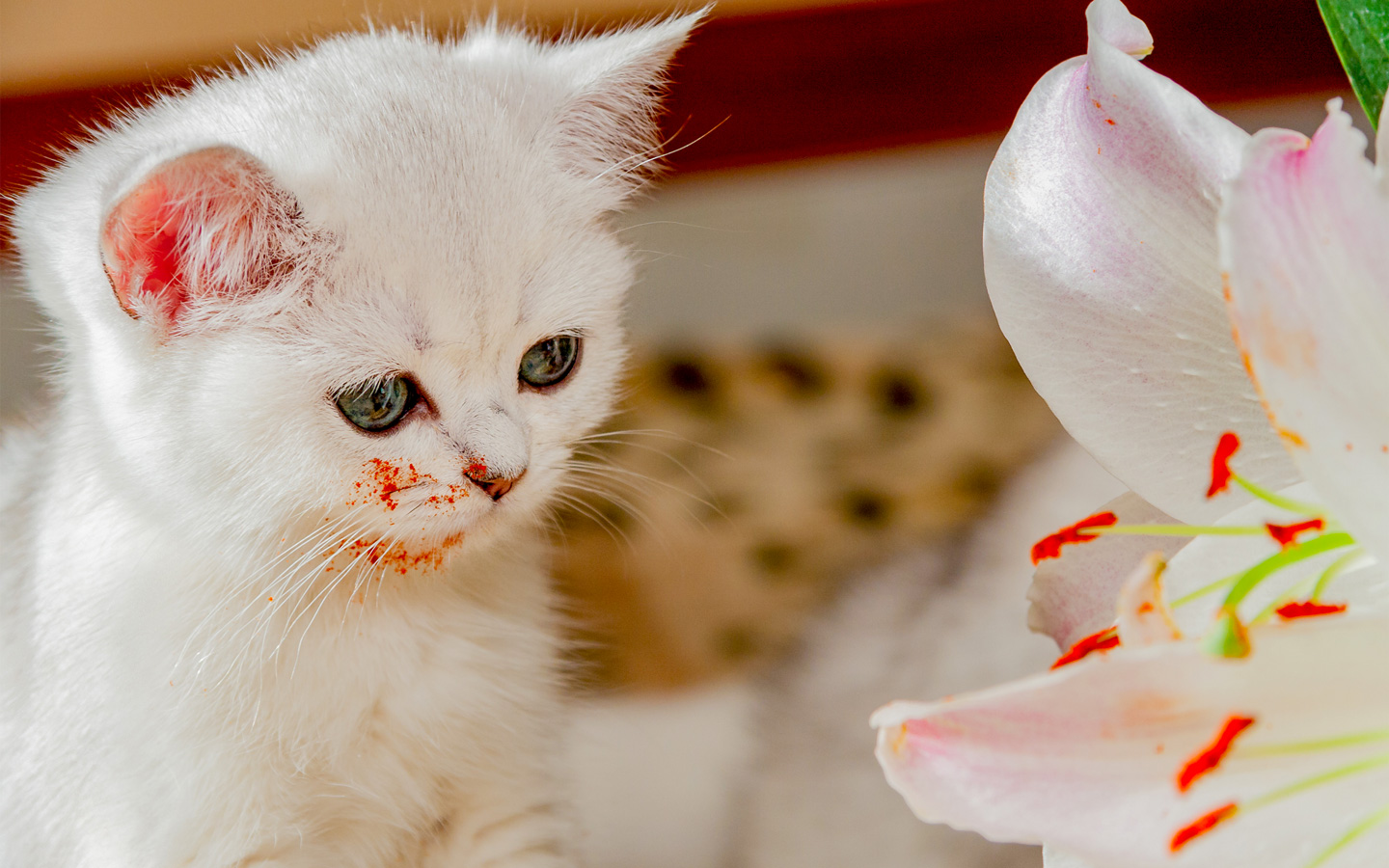Lily Toxicity in Cats

Easter is around the corner and we’ve already had two cases of lily toxicity here at Canada West. Now is the time to review how certain species of lilies cause kidney failure in our feline friends.
It has been pointed out that every time holidays roll around I’m doom and gloom about the possible hazards. Fair enough! There’s a reason we call them the “chocolate holidays”. But while most people now know to keep chocolate away from dogs, they may not know that the lily they were given might kill their cat.
Several species of lilies are toxic to cats, including Easter lilies, Stargazer, Tiger, Japanese, Asian and day lilies. The toxic species are either from the lilium family or the Hemerocallis family (true and day lilies)
It is important to note that all parts of the lily (the flowers, pollen, leaves and stems) are toxic in even very small quantities.

Acute Kidney Injury (AKI)
The mechanism of the kidney injury is unknown, but we do know that it is due to damage of renal tubules lining, while leaving the basement membrane intact.
Lily toxicity affects only cats, no other species. The reason may be the plant toxin itself, or that there may be a specific metabolite created that affects only felines.
While ingesting any part of the lily (flower, leaves or stem) causes this poisoning, most of the cases we have seen over the years typically involve pollen. Cats sniff the flowers and get pollen on their noses, or get it on their coats and licking it off.
Signs
Symptoms can occur within a few hours of ingestion and are due to irritation of the lining of the stomach and intestines. They include:
- Hypersalivation (drooling)
- Vomiting
- Anorexia
- Weakness
- Depression
These initial signs can resolve within 12 hrs but will reoccur within 36 – 48 hrs because of the AKI. The kidney injury will lead to dehydration, further vomiting and finally reduced urine production. While the prognosis is good if treatment is started soon after the ingestion, it becomes more guarded once acute injury is noted and worsens if the cat becomes unable to produce urine. Without treatment, death typically occurs in 3 to 7 days after the ingestion. In cats that survive without treatment, chronic kidney disease may be a long-term sequela.
There is a good likelihood of recovery if the patient can be monitored and supported for 48 hours early in the disease process.
Treatment
In cats, treating with intravenous (IV) fluids is a delicate balancing act. You need to give enough fluid to prevent dehydration and provide adequate blood flow to the kidneys, while avoiding giving more fluid than they are able to tolerate. Close monitoring is required and should ideally be done in a 24/7 care facility, preferably in a dedicated ICU. Once kidney damage has occurred, treatment options are limited. Hemodialysis has been successful in some cases
Conclusion:
Cats are very susceptible developing acute kidney injury following exposure to lilies. With this blog post, we aim to raise awareness to prevent further cases. Gradually, the public has become aware of other poisoning hazard for our pets like antifreeze, chocolate, and grapes; hopefully there will come a time when pet owners and florists all know that cats are not safe around lilies.

